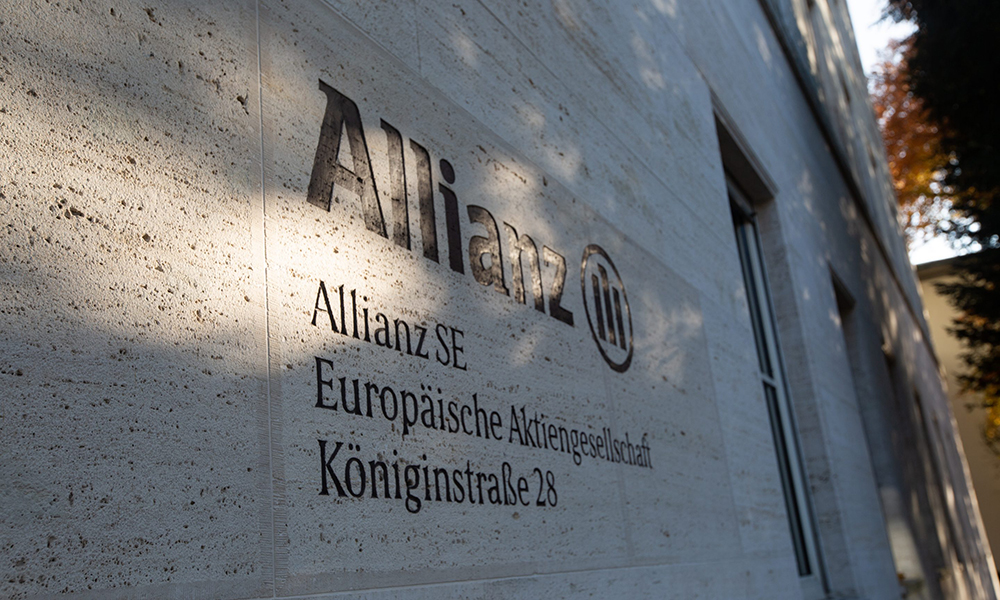
德国保险业巨头安联(Allianz)周一正式放弃收购新加坡保险公司英康保险(Income Insurance)的多数股权。英康保险在一份单独的声明中证实安联撤回了报价。
自10月以来,拟议的收购案一直悬而未决,因为新加坡政府表示将阻止以最初提出的形式进行交易。安联此次撤回报价正式结束了这笔交易。这笔交易一度引起公众热议,人们讨论的焦点是外国保险公司是否可以收购一家肩负社会使命的新加坡公司。
今年早些时候,在《财富》世界500强中排在第82位的安联,提出收购英康保险51%的股份。这笔交易价值22亿新加坡元(约合16.3亿美元),于7月17日宣布,如果成功,安联将成为亚洲第四大保险公司。
但这笔交易很快遭到了公众的强烈反对,包括一些新加坡名人。人们争议的核心是英康保险在新加坡社会中扮演的角色及其作为一家合作社的原始身份。10月14日,新加坡政府叫停了这笔交易,理由是对拟议交易结构以及英康保险在安联领导下能否继续履行其社会使命的担忧。
争论的焦点是什么?
英康保险成立于1970年,作为一家合作社,旨在满足新加坡民众对经济实惠的保险的需求。英康保险于2022年进行了公司化改制,但公司近73%的股份由职总创优企业合作社(NTUC Enterprise)持有。
在英康保险改制时,政府允许其将价值20亿新加坡元(约合14.8亿美元)的盈余资金转移到新的公司实体,而不是捐赠给国家的“合作社清算账户”,该账户内是用于支持更广泛的合作社运动的资金。
然而,当安联提出收购英康保险时,它同意在三年内向股东支付近14亿美元,这引起了新加坡政府的关注。
新加坡文化、社区及青年部部长唐振辉在10月份对议会表示:“拟议的资本缩减与给予豁免的前提条件相悖。”
一些新加坡名人也公开反对这笔交易,质疑英康保险在新东家领导下是否能够履行其社会使命。
新加坡资深外交官许通美表示,他担心像安联这样的外国所有者是否还会投入资源开发产品,满足那些最有需要的人群,例如英康保险在2010年推出的为有孩子的家庭提供免费保险的计划,或其2013年为自闭症儿童提供保险的决定。
英康保险的网站显示,公司目前拥有约170万客户。新加坡有约418万常住人口和约186万非常住人口,包括外籍家政工人、家属和外国留学生。外国人可以从英康保险购买保险。
英康保险尚未改制时的首席执行官陈诸杰7月底在一篇Facebook帖子中写道,英康保险的宗旨是服务新加坡人,而“不是安联欧洲公司的股东”。陈诸杰还补充说,英康保险的DNA是“以人为本,而不是以利润为先”,公司永远不应该背弃定义其身份和使命的这一原则。
在整个事件中,英康保险坚持认为其行为是善意的,旨在保护包括保单持有人和股东在内的所有利益相关者的利益。该保险公司在10月份表示,安联收购多数股权的交易计划将进一步增强英康保险的财务韧性,并使其在未来面临任何金融危机时能够获得额外的资本支持。
当前的情况如何?
10月,在新加坡政府称将阻止该交易后,安联表示将与利益相关者密切合作,考虑对拟议的交易结构进行修改。
然而,周一,负责亚太地区业务的安联管理委员会成员雷纳特·瓦格纳表示,安联尊重新加坡政府的决定。他坚持认为,公司仍然相信安联与英康保险的结合将对其保单持有人和新加坡有利。
英康保险表示,将继续为股东探索流动性选项,股东可以在自愿的基础上继续买卖其股份,并且公司将正常运营,不会对保单持有人产生影响。
该交易的失败使安联的亚洲计划受挫。安联目前是亚洲第九大保险公司;如果成功收购英康保险将使其跃升至第四位。安联称亚太地区是一个“具有重要战略意义的增长区域”,并在12月10日再次指出该地区的潜力,特别是在该地区人口老龄化的情况下提供退休解决方案。去年,这家德国保险公司财产-意外险和人寿/健康零售保险业务的总营业额为77亿欧元(约合80.7亿美元)。
目前,亚洲的保险业由中国人寿保险(China Life Insurance)、平安保险(Ping An Insurance)和友邦保险(AIA Group)等本地公司主导。预计到2030年,亚太地区的目标市场总规模将超过欧洲或美国。(财富中文网)
译者:刘进龙
审校:汪皓
德国保险业巨头安联(Allianz)周一正式放弃收购新加坡保险公司英康保险(Income Insurance)的多数股权。英康保险在一份单独的声明中证实安联撤回了报价。
自10月以来,拟议的收购案一直悬而未决,因为新加坡政府表示将阻止以最初提出的形式进行交易。安联此次撤回报价正式结束了这笔交易。这笔交易一度引起公众热议,人们讨论的焦点是外国保险公司是否可以收购一家肩负社会使命的新加坡公司。
今年早些时候,在《财富》世界500强中排在第82位的安联,提出收购英康保险51%的股份。这笔交易价值22亿新加坡元(约合16.3亿美元),于7月17日宣布,如果成功,安联将成为亚洲第四大保险公司。
但这笔交易很快遭到了公众的强烈反对,包括一些新加坡名人。人们争议的核心是英康保险在新加坡社会中扮演的角色及其作为一家合作社的原始身份。10月14日,新加坡政府叫停了这笔交易,理由是对拟议交易结构以及英康保险在安联领导下能否继续履行其社会使命的担忧。
争论的焦点是什么?
英康保险成立于1970年,作为一家合作社,旨在满足新加坡民众对经济实惠的保险的需求。英康保险于2022年进行了公司化改制,但公司近73%的股份由职总创优企业合作社(NTUC Enterprise)持有。
在英康保险改制时,政府允许其将价值20亿新加坡元(约合14.8亿美元)的盈余资金转移到新的公司实体,而不是捐赠给国家的“合作社清算账户”,该账户内是用于支持更广泛的合作社运动的资金。
然而,当安联提出收购英康保险时,它同意在三年内向股东支付近14亿美元,这引起了新加坡政府的关注。
新加坡文化、社区及青年部部长唐振辉在10月份对议会表示:“拟议的资本缩减与给予豁免的前提条件相悖。”
一些新加坡名人也公开反对这笔交易,质疑英康保险在新东家领导下是否能够履行其社会使命。
新加坡资深外交官许通美表示,他担心像安联这样的外国所有者是否还会投入资源开发产品,满足那些最有需要的人群,例如英康保险在2010年推出的为有孩子的家庭提供免费保险的计划,或其2013年为自闭症儿童提供保险的决定。
英康保险的网站显示,公司目前拥有约170万客户。新加坡有约418万常住人口和约186万非常住人口,包括外籍家政工人、家属和外国留学生。外国人可以从英康保险购买保险。
英康保险尚未改制时的首席执行官陈诸杰7月底在一篇Facebook帖子中写道,英康保险的宗旨是服务新加坡人,而“不是安联欧洲公司的股东”。陈诸杰还补充说,英康保险的DNA是“以人为本,而不是以利润为先”,公司永远不应该背弃定义其身份和使命的这一原则。
在整个事件中,英康保险坚持认为其行为是善意的,旨在保护包括保单持有人和股东在内的所有利益相关者的利益。该保险公司在10月份表示,安联收购多数股权的交易计划将进一步增强英康保险的财务韧性,并使其在未来面临任何金融危机时能够获得额外的资本支持。
当前的情况如何?
10月,在新加坡政府称将阻止该交易后,安联表示将与利益相关者密切合作,考虑对拟议的交易结构进行修改。
然而,周一,负责亚太地区业务的安联管理委员会成员雷纳特·瓦格纳表示,安联尊重新加坡政府的决定。他坚持认为,公司仍然相信安联与英康保险的结合将对其保单持有人和新加坡有利。
英康保险表示,将继续为股东探索流动性选项,股东可以在自愿的基础上继续买卖其股份,并且公司将正常运营,不会对保单持有人产生影响。
该交易的失败使安联的亚洲计划受挫。安联目前是亚洲第九大保险公司;如果成功收购英康保险将使其跃升至第四位。安联称亚太地区是一个“具有重要战略意义的增长区域”,并在12月10日再次指出该地区的潜力,特别是在该地区人口老龄化的情况下提供退休解决方案。去年,这家德国保险公司财产-意外险和人寿/健康零售保险业务的总营业额为77亿欧元(约合80.7亿美元)。
目前,亚洲的保险业由中国人寿保险(China Life Insurance)、平安保险(Ping An Insurance)和友邦保险(AIA Group)等本地公司主导。预计到2030年,亚太地区的目标市场总规模将超过欧洲或美国。(财富中文网)
译者:刘进龙
审校:汪皓
German insurance giant Allianz withdrew its bid to acquire a majority stake in Income Insurance, a Singapore-based insurance company, on Monday. Income Insurance confirmed in a separate statement that Allianz withdrew its bid.
The proposed acquisition has been hanging in the balance since October, after Singapore’s government said it would block the deal in the form that was initially proposed. But the withdrawal formally ends a deal that stirred passionate public discussions over whether a foreign insurer should be taking over a Singaporean company with a social mission.
Earlier this year, Allianz, ranked No. 82 on the Global 500, offered to acquire a 51% stake in Income Insurance. The deal, valued at 2.2 billion Singapore dollars ($1.63 billion), was announced on July 17, and would have made Allianz the fourth-largest insurer in Asia.
But the proposed deal quickly drew public backlash, including from high-profile Singaporeans. At the heart of the outcry was Income Insurance’s role in Singaporean society and its roots as a cooperative. On Oct. 14, Singapore’s government called off the deal, citing concerns over the proposed structure and Income’s ability under Allianz to continue its social mission.
What was the debate?
Income Insurance was launched as a cooperative in 1970, and was founded to fill the need for affordable insurance in Singapore. The insurer was corporatized in 2022, but almost 73% of the firm is owned by NTUC Enterprise, a holding cooperative.
When Income changed its status, the government allowed it to move a surplus worth 2 billion Singapore dollars ($1.48 billion) to the new corporate entity, rather than be donated to the country’s “Cooperative Societies Liquidation Account,” a pool of money used to support the broader co-op movement.
Yet when Allianz offered to buy Income Insurance, it agreed to pay out almost $1.4 billion over three years to shareholders. That raised eyebrows in Singapore’s government.
“The proposed capital reduction runs counter to the premise on which the exemption was given,” said Edwin Tong, Singapore’s minister of culture, community, and youth, to the country’s parliament in October.
Prominent Singaporeans also spoke out against the deal, questioning whether Income Insurance could fulfil its social purpose under a new owner.
Tommy Koh, a veteran Singaporean diplomat, expressed worries that a foreign owner like Allianz would not devote resources to create products that serve the needy, like Income Insurance’s 2010 scheme that offered free insurance to families with young children, or its 2013 decision to provide insurance coverage to children with autism.
Income Insurance currently has about 1.7 million customers according to its website. Singapore has a resident population of about 4.18 million and about 1.86 million non-residents that include migrant domestic workers, dependents and international students. Foreigners are able to buy coverage from Income Insurance.
Tan Suee Chieh, a former CEO of Income Insurance back in its cooperative days, also wrote in a Facebook post in late July that Income Insurance is meant to serve Singaporeans and “not the shareholders of Allianz Europe BV”. Tan also added that Income Insurance’s DNA is “people before profits” not “profits before people” and that the company should never sell out on that principle that defines its identity and purpose.
Throughout the saga, Income Insurance maintained that it acted in good faith to safeguard the interests of its stakeholders, including policyholders and shareholders. The insurer said in October that Allianz’s proposed deal to acquire a majority stake would further enhance Income Insurance’s financial resilience and enable Income Insurance to call on additional capital support in the event of any future financial crises.
What happens now?
In October, after the government said it would block the deal, Allianz said that it would work closely with relevant stakeholders to consider revisions to the proposed transaction structure.
Yet on Monday, Renate Wagner, an Allianz SE board of management member who is responsible for the Asia-Pacific region, said Allianz respects the Singapore government’s decision. He maintained the company still believed that an Allianz and Income Insurance combination would benefit Income Insurance’s policyholders and Singapore.
Income Insurance said it would continue to explore liquidity options for shareholders and that shareholders can continue to buy and sell their shares on a willing-buyer and willing-seller basis—and that business remains as usual with no impact to policyholders.
The collapsed deal is a setback for Allianz’s Asia plans. Allianz is currently the ninth-largest insurer in Asia; Acquiring Income would have lifted it to fourth place. Allianz has called the Asia-Pacific region a “strategically important growth area” and the company on Dec. 10 again noted the region’s potential, particularly on providing retirement solutions as the region ages. The German insurer generated 7.7 billion euros ($8.07 billion) in total business volume across its property-casualty and life/health retail insurance businesses last year.
Asia’s current insurance industry is dominated by local players like China Life Insurance, Ping An Insurance, and AIA Group. Asia Pacific is projected to have a bigger total addressable market than Europe or the U.S. by 2030.






